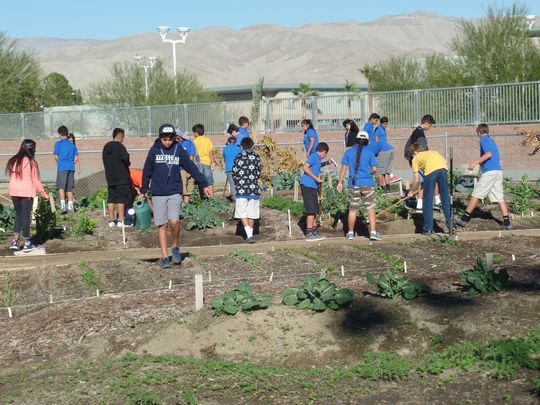
Share On Social!
In Palm Desert, Calif. (22.8% Latino) the Desert Sands School Districts are encouraging students to have a hands-on education about agriculture, gardening, health benefits of plants and more.
Incorporating science, math, nutrition, language arts and art, students are learning integral lessons about gardens, farming, and how to incorporate farm-to-table solutions for a healthier lifestyle. Starting in elementary schools like Ford Elementary School, where each class has their own gardens, to middle schools like La Quinta Middle school where students go on farm field trips, all the way up to high school like Palm Desert High School, where handicap students have had a garden for over six years.
Incorporating a culture of health, students have been encouraged to use the vegetables, herbs, and plants grown in the gardens in various ways. La Quinta High School has even planned to revamp an existing garden to make it a medicinal plant garden and incorporate biology classes into time in the gardens.
The percentage of Latino students enrolled in public schools is expected to continue to rise, reaching an estimated 30 percent in 2023. Helping Latino students learn about gardening all while building on the knowledge and health benefits of fresh produce may increase their consumption of vegetables and healthier foods.
Studies show Latino students also engage in less physical activity both in and out of school compared to their peers. Schools that are incorporating gardens and having time outside gardening, may decrease sedentary behavior inside at school desks, and increase students overall health.
To learn more about healthier schools for Latino kids, click here.
By The Numbers
84
percent
of Latino parents support public funding for afterschool programs



